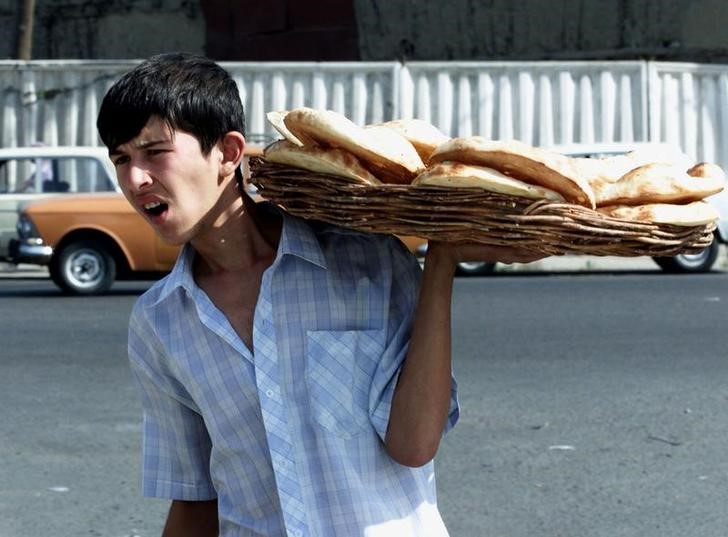(Adds background, quotes)
By Terrence Edwards
ULAANBAATAR, Aug 18 (Reuters) - Mongolia raised its benchmark interest rates by 4.5 percentage points to 15 percent on Thursday, the central bank said, in a bid to stabilise a currency that has been in free-fall.
Elected in a landslide in late June, the country's new government has been plunged into an economic crisis, with its currency, the tugrik, losing 8 percent against the dollar so far this month, making it the world's poorest performing currency.
"Financial measures for the medium term have been taken to increase the rate of return for local-currency assets and provide more stability for the tugrik," the central bank said in a statement.
The Mongolian People's Party government, headed by Prime Minister Jargaltulga Erdenebat, is also cutting government salaries and suspending selected welfare programmes in a bid to reduce its costs.
The landlocked North Asian country, wedged between China and Russia, has been struggling with weak demand for its chief export commodities, coal and copper, as well as a collapse in foreign investment.
Mongolia's new finance minister, Battogtokh Choijilsuren, warned the 3 million strong nation last week that the government would struggle to pay out wages, prompting a collapse in Mongolia's sovereign bonds.
The state is even struggling to pay out prize money to its Olympic athletes. debt was projected to reach of 21.3 trillion tugrik ($9.48 billion), the equivalent to 78 percent of gross domestic product by the end of the year, according to the finance ministry.
The ratio was only 30 percent in 2009, when Mongolia last reached out for an International Monetary Fund bail out.
As investors sold Mongolian sovereign bonds over the past week, a $1 billion issue due 2022 MN086153904= fell 4 points to trade on Thursday at 86/87 cents on the dollar.
Analysts say the current crisis was a result of the previous government's attempts to reverse the decline in foreign investment through debt and fiscal expansion.
"Policy settings in recent years have been very loose, and contributed to pressures on Mongolia's external accounts," said Andrew Fennell, associate director, Asia Pacific Sovereigns, at Fitch Ratings in Hong Kong.
"We view the rate hike as a potential sign that policy priorities have moved towards stabilizing these ongoing external pressures," he said.
The country's rapid economic growth four years ago was based on large volumes of foreign investment into the country's huge and largely untapped mining assets, including the Rio Tinto-run Oyu Tolgoi RIO.AX RIO.L TRQ.TO project.
But huge new projects like the Tavan Tolgoi coal deposit have been put on hold, as Mongolia became embroiled in disputes with investors amid concerns over the growing role played by foreign firms in the country's economy.
Mongolia finally agreed a long-delayed $5.3-billion extension plan for Oyu Tolgoi with Rio Tinto in May, but the project, Mongolia's biggest earner, is not expected to rescue the economy, expected to grow at just 0.4 percent this year, according to forecasts from the International Monetary Fund.
The country received just $35 million of foreign direct investment for the first half of this year, compared with $4.62 billion for the whole of 2011.
And, the Asian Development Bank expects Mongolia to run a current account deficit equivalent to 8 percent of gross domestic product this year, and 15 percent next year.
Dale Choi, analyst at Independent Mongolian Metals & Mining Research, said in a note on Thursday that the currency, which has lost nearly 13 percent so far this year, had not yet bottomed out. He said the tugrik, which traded at 2,247 to the dollar MNT= on Thursday, was expected to weaken to 2,400 by the end of the year. ($1 = 2,247 tugrik) (additional reporting by Umesh Desai in Hong Kong; Writing by David Stanway; Editing by Simon Cameron-Moore)
